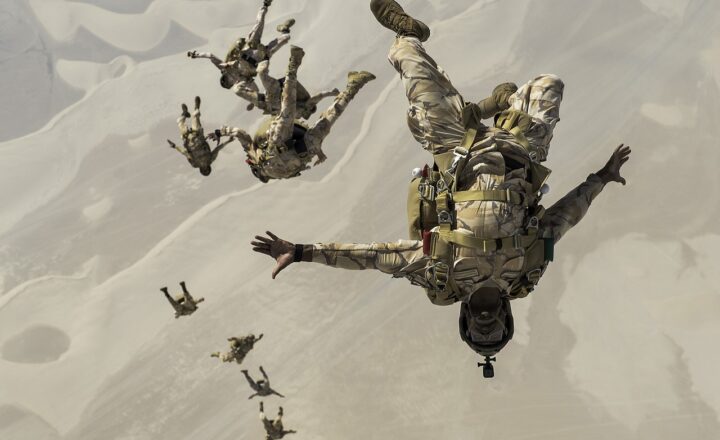
The Central Intelligence Agency (CIA) has played a pivotal role in some of the most controversial and clandestine operations throughout its history. Among the most shocking allegations is that of its involvement in the global drug trade. Accusations have surfaced over decades, linking the CIA to drug trafficking activities that purportedly aided its covert operations, funded regimes, and garnered power globally. In this article, we delve into the history of these allegations, exploring the evidence, motivations, and implications behind them.
1. Background of the Allegations
The allegations surrounding the CIA’s involvement in drug trafficking are rooted in a combination of historical events, military interventions, and political manipulations. These claims gained prominence during the Vietnam War, where covert activities financed through narcotics trade became pivotal in sustaining operations in key regions like Southeast Asia.
Many theorize that as the United States battled communism, agents found various methods to fund operations covertly. Reports suggest that some CIA operatives collaborated with warlords and drug lords to secure routes and leverage the illicit drug trade to maintain national interests overseas.
Beyond Vietnam, the CIA’s alleged complicity reached into Latin America during the 1980s. Popular accounts of the Contras, a rebel group funded by the U.S. government in Nicaragua, uncovered linkages between them and the trafficking of cocaine into the United States. These drugs ended up in marginalized communities, deeply exacerbating the crack epidemic that ravaged urban cities.
2. Key Events and Revelations
Several events have unveiled layers of the CIA’s purported role in the drug trade:
2.1 The Iran-Contra Affair
The Iran-Contra Affair remains one of the most notorious scandals in American political history. During the 1980s, the Reagan administration sought to aid the Nicaraguan Contra rebels while simultaneously undermining a congressional ban on funding. Documents surfaced, indicating that profits from drug trafficking were used to finance military supplies for the Contras, raising serious questions about the agency’s involvement in drug-related activities.
The Contra rebels were reportedly involved in smuggling cocaine to fund their military campaigns against the Sandinista government. Investigators revealed that the CIA might have turned a blind eye, therein facilitating the drug trade for financial gain.
2.2 Gary Webb’s Dark Alliance
In 1996, investigative journalist Gary Webb published a series entitled “Dark Alliance” which asserted that the CIA was complicit in the cocaine epidemic sweeping the United States. Webb’s articles argued that the agency’s partnerships with drug traffickers directly contributed to the influx of crack cocaine in African-American neighborhoods. While Webb faced criticism and his career suffered, many continue to regard his articles as a pivotal moment that brought the drug-related allegations in direct focus.
2.3 Congressional Hearings and Reports
In the wake of increasing scrutiny, Congress initiated various hearings to investigate the CIA’s role in drug trafficking. Reports from both the Kerry Committee in the late 1980s and the 1998 House Permanent Select Committee on Intelligence detailed alarming findings. The reports outlined numerous instances in which the CIA either ignored or tacitly supported drug operations in Central America, particularly amongst anti-communist rebels.
Although these investigations revealed troubling evidence, they ultimately failed to provide conclusive damning proof of direct CIA involvement in drug trafficking, leading to debates on the agency’s moral implications and accountability.
3. Motivations Behind Alleged Involvement
The motivations behind the CIA’s alleged role in the drug trade are multifaceted. Many analysts assert that the agency’s primary focus remains national security and global dominance. Here are some key motivators:
- Funding Covert Operations: One of the most significant motivations behind potential CIA involvement in drug trafficking centers on funding. In regions where Congress prohibited military aid, narcotics trade emerged as a expedient source of income to finance covert actions. This financial influx allowed the CIA to retain some agency and maneuverability globally without reliance on congressional approval.
- Counteracting Rival Ideologies: The Cold War period saw the CIA engaged in various military and psychological operations to undermine communism. Associating with local drug lords who matched political interests was viewed as a means to achieve stability and deter adversaries in strategically critical regions, such as Southeast Asia and Latin America.
- Undermining Foreign Governments: During the fight against perceived hostile governments, drug lords sometimes served as allies against socialist regimes. By manipulating the drug trade, the CIA could, in theory, exacerbate political destabilization, creating chaos that would justify U.S. intervention and influence within those nations.
The intertwining nature of national security interests and drug operations has created a tangled web of political ramifications and social justice concerns.
4. The Impact on Society and Politics
The alleged CIA involvement in the global drug trade has had profound consequences for society and politics, particularly within the United States and Latin America. The fallout includes:
4.1 Rise of the Drug Epidemic
The influx of drugs, primarily cocaine and heroin, into American communities has devastated public health and safety. The crack cocaine epidemic of the 1980s, strongly correlated with the allegations of CIA complicity, had long-lasting effects on marginalized communities, resulting in criminalization, social unrest, and family disintegration, while politicians historically levied harsh drug laws in response.
4.2 Distrust in Government
The allegations have engendered a pervasive distrust in the U.S. government. Many citizens feel betrayed by government officials who purportedly engaged in morally questionable practices under the guise of national security. This distrust has perpetuated conspiracy theories and left deep scars on public perception of governance.
4.3 Political Consequences in Latin America
The CIA’s alleged support and facilitation of drug trade adversely affected the political landscape in several Latin American countries. Governments struggling for legitimacy faced challenges from drug trafficking organizations. The involvement of U.S. intelligence has often deepened existing crises, undermining democratic processes and contributing to cycles of violence and instability.
5. Conclusion
The allegations of the CIA’s involvement in the global drug trade persist, embodying a complex interplay of national security, covert operations, and moral ambiguity. While tangible evidence remains elusive, the ramifications of these actions continue to shape the political landscape, societal structure, and individual lives across the globe. The discussions surrounding the CIA’s role reflect larger conversations about accountability, transparency, and the ethical bounds of intelligence.
As we unravel the historical context intertwined with the present challenges, it is imperative to critically assess intelligence operations and the lasting impacts they carve into the fabric of society. Only through open dialogue can trust in governance and the pursuit of justice effectively be restored.








